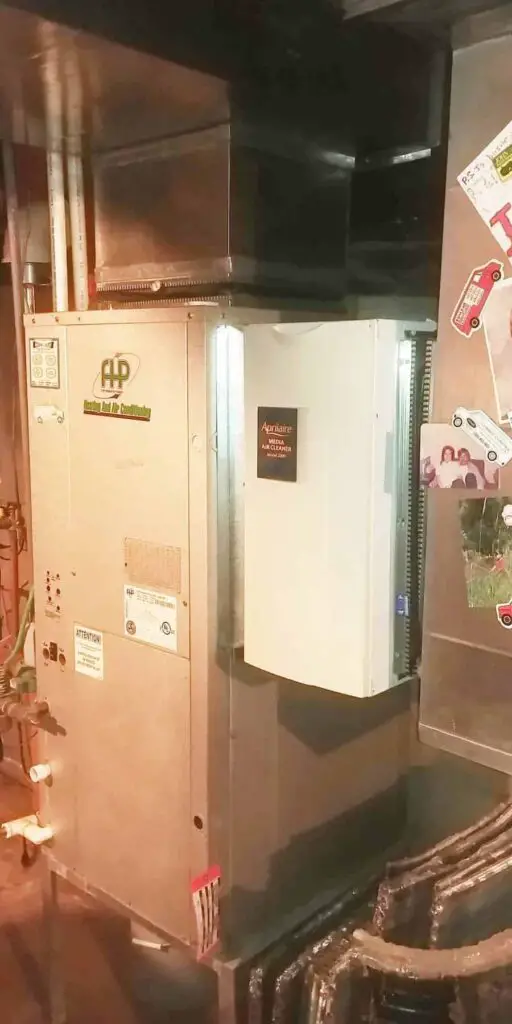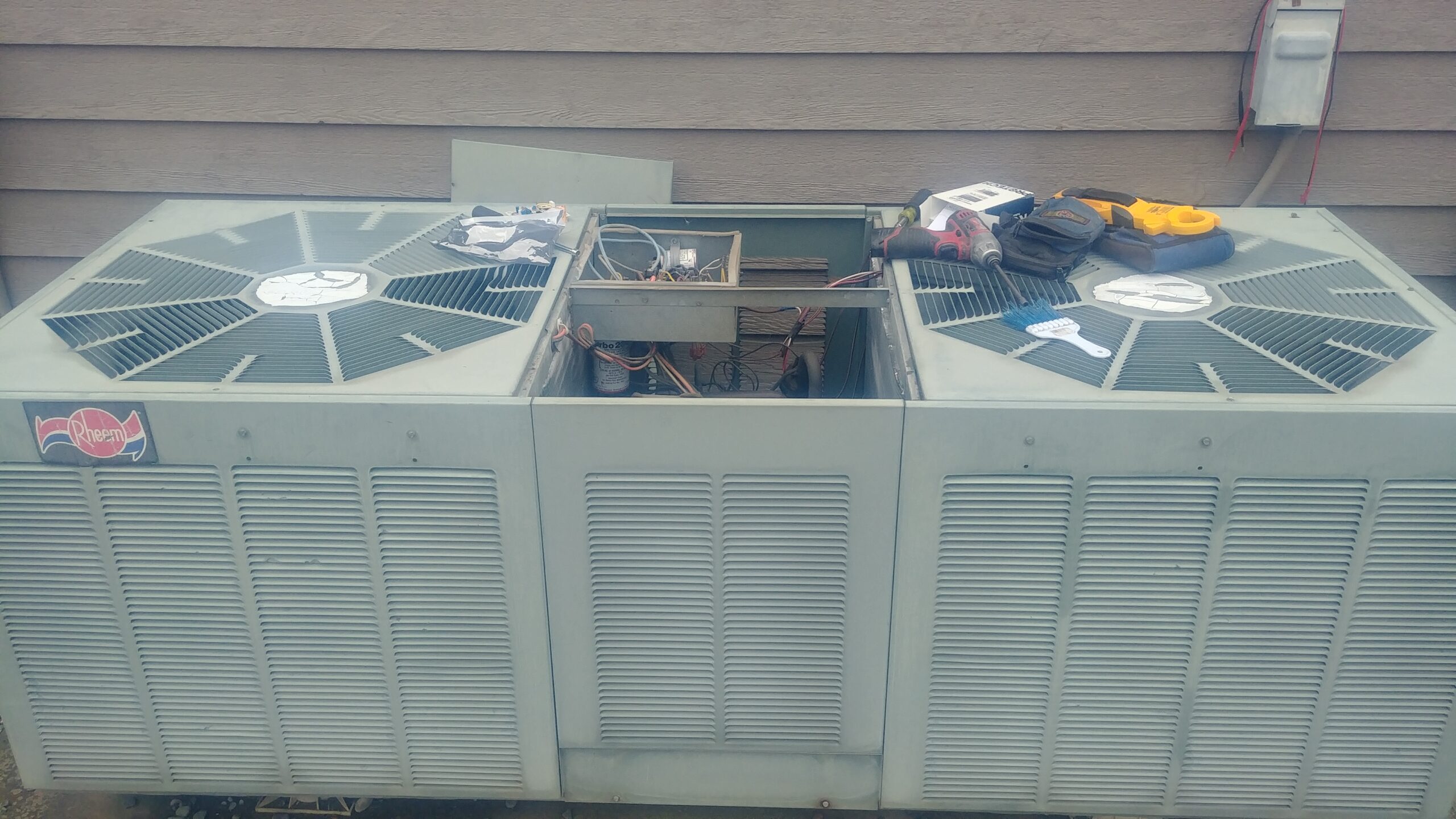And not to complicate the acronym but there is also HVACR. So getting right down to it, here’s the definition:
Heating, Venting , Air Conditioning and the “R” is Refrigeration.
HVAC has become the closest thing to a title that we in the industry have been able to acquire. Those that do plumbing are plumbers. The wiring is done by electricians. Mechanics repair autos.
They all have a single word handle.
What do you call the installers and those that do service on heating and air conditioning equipment? Why don’t we have an easy moniker like plumber or electrician?
When asked what trade or skill we have we have to answer with ” I’m in HVAC” or “heating and air conditioning. It’s just not simple enough.
So you could call us H-VAC’ers or HVAC’ers. It’s a pet peeve of mine.
I just returned from a visit with my son in Arizona. My two grandsons have both entered the trades.
Believe it or not, one is a plumber and the other an electrician. Both apprentices, one union and the other non-union.
I had to tell them why I liked my trade. Plumbers plumb stuff. Electricians wire stuff. But, HVAC’ers have to do it all. We even add to that, sheet metal fabrication and welding.
So in the HVAC industry we have to plumb in gas pipe and condensate drains, weld refrigeration lines and connect power wiring to equipment. Some areas are even allowed to run electrical circuits. Along with control wiring for thermostats and other HVAC equipment.
In my state I have to carry two electrical licenses. They don’t allow me to wire a house or repair electrical services, but they do allow me to work inside a unit and reconnect power for replacing units.
Another license let’s me pull thermostat wire. I’m really proud of that one with slight sarcasm.
What Does HVAC Mean When Referring To Your Home?
We talked about HVAC’ers, the people involved in the industry of installing and servicing of heating and air conditioning systems. How does the term apply to your home or even your office.

Anything related to heating and cooling a home or a commercial building is related to the term HVAC. Even the walk in coolers at your local restaurants include the HVACR for the refrigeration aspect of the acronym.
The “R” for refrigeration also includes the refrigeration (Freon) work done when connecting heat pumps and air conditioners.
Note: Freon is a brand name for refrigerant, like tissue, everybody calls it Kleenex.
The term HVACR covers everything that relates to the warmth and comfort of a home related to temperature, humidity, and venting of fans and dryer. Including any filtration for indoor air quality.
Bathroom fans have to be vented. Furnaces are vented with duct work and exhaust venting. Clothes dryers are vented to the outside.
All these things that have to be vented brings up another problem with today’s tighter homes. Imagine if all the fans in a home are on. The kitchen hood, bathroom fans, dryer, attic fan, where does all that air come from?
A tight home with lots of really good windows and doors with good seals presents a serious problem for a bathroom fan trying to get rid of obnoxious odors. The fresh air has to come from somewhere.
New technologies have developed to provide homes and businesses with fresh air without filling the home with unconditioned air.
Years ago when energy costs were on the rise and indoor air quality was becoming a thing, we were running a duct to the outside of homes and attaching it to the return duct before the filter.
It would slightly pressurize the home and provide fresh air. At the same time when doors would open or windows would leak it helped keep the dust out.
But that also introduced very cold air in the winter and very hot air in the summer.
Today we have fresh air exchangers. They condition the air before it enters the home by the means of a heat exchanger that tempers the air so it isn’t so cold or hot and provides it’s own filtering.
More Related Things To HVACR
Along with indoor air quality and things that pertain to HVAC are products to improve the air we breath. Our homes are what contain the air that is most often a part of our general health.
So many things have been developed to improve that air quality. UV lights help sanitize the air and electronic air filters collect the finest particles.
High efficiency filters that are now rated by an independent source have a MERV rating to take the guessing out of what filter is really more efficient or which one is too efficient.
Yes, you can choose a filter that is too efficient. Furnace fans are designed to deliver only so much air. When a filter that has a MERV rating that is too high it can restrict the air flow and damage the system.
I wrote an entire article on that subject. Go read it here.
Conclusion
So HVACR is a very all inclusive acronym for anything related to the indoor air quality of your home. The duct work should be the right size and sealed properly to supply each room with the proper amount and quality of air it needs.
The HVAC system includes any heating or cooling equipment that should be properly sized to have enough cooling to cool your home on the hottest day and heat it to your comfort level on the coldest day.
Your kitchen should be vented to remove cooking odors and smoke when you burn the toast and you know why the bathroom fans need to work sufficiently.
All in all the HVAC trade is an interesting one. It has a reputation that is totally dependent on the quality of an installation. Lemon laws were originally developed for automobiles, but I’m seeing some interest from my readers who wonder if lemon laws can pertain to HVAC equipment.
Especially related to heat pumps because so many of the problems are installation related, not equipment or manufacturer related. It’s really hard to prove that a heat pump or even any other piece of HVAC equipment is a lemon when so many factors of installation are most always the root problem.
Audios

